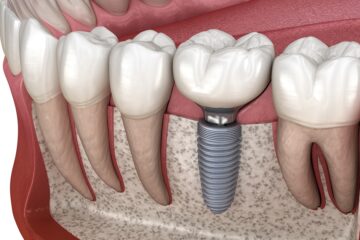Sleep, Fatigue, and Diagnosing Low T
Although many men do not have symptoms of Low Testosterone, this condition can be debilitating. It is important to get a diagnosis from your physician as early treatment is critical to recovery. There are many reasons for this hormonal imbalance, including a genetic predisposition, drug use, and age-related changes to the pituitary gland and testes. In addition, a healthy lifestyle can help to maintain normal levels.
There are many symptoms of low testosterone, and the condition may be hard to treat. In severe cases, it may require a surgical procedure. In other cases, the hormone is simply depleted and will not return to normal levels. For example, a man with low testosterone may experience a loss of libido or diminished erections. Other symptoms of low sex drive are mood swings, reduced energy, and decreased libido.
In women, low testosterone levels can have negative effects on fertility. While low testosterone levels do not affect the sex drive, a man with low testosterone levels may have trouble conceiving. The scrotum may become soft or painful. Moreover, a man with low T-levels may have difficulty falling asleep or achieving a stable sleep. And since testosterone is crucial to male reproduction, men with low testosterone may suffer from trouble conceiving.
Some men with low testosterone may have reduced ejaculation and reduced semen volume. A man with low T may notice reduced testicle size and reduced scrotum size. In addition, testosterone is important for hair production, and low T can cause loss of facial or body hair. Another symptom of low T is extreme fatigue. It may be difficult to get motivated to exercise, and it may even make it difficult to fall asleep.
In men with low T, there are several symptoms of this condition. A lower T level can affect a man’s mood, energy levels, and fertility. Fortunately, there are treatment options for this disorder that are safe and effective. However, low T can be uncomfortable to talk about, and it is important to seek help immediately. If you are experiencing any of these symptoms, it is vital to seek medical care to ensure your health.
Men with low T may experience decreased testicle size and hair. The number of hair follicles will also decrease. Some men will notice a reduction in semen during ejaculation. A decrease in semen can also cause trouble with fertility. And, men with low T may not be able to sleep. This can lead to an increased risk of heart attack, stroke, and even diabetes. If these symptoms continue, it may be time to see a doctor.
If you have symptoms of Low Testosterone, you will need to see a doctor. You need to be able to tell if you’re experiencing the symptoms of Low T. Your physician will be able to determine which symptoms are more troubling than others. The best way to tell if your symptoms of Low Testosterone are caused by a lack of testosterone is to talk with your doctor. He will explain the risks and benefits of treatment and discuss the options available to you.
A doctor may diagnose Low Testosterone if the level is below 300 nanograms per deciliter of blood. This condition affects a person’s ability to reproduce, resulting in reduced libido and erectile dysfunction. A man’s sex drive and bone mass also decrease. According to the American Urological Association, approximately two out of every 100 men suffer from low levels of this hormone. A low testosterone level can lead to an erectile dysfunction, loss of muscle mass, and diminished sex drive.
The symptoms of low testosterone are various. A man suffering from low testosterone may feel mood swings, lack energy, and have difficulty concentrating. Lastly, he may have difficulty in conceiving, which can affect fertility. Treatment options for low-testosterone conditions vary depending on the severity and cause of low testosterone. If you are suffering from any of these symptoms, you should consult a doctor as soon as possible.
Depending on the severity of the condition, men may experience decreased libido, reduced sex drive, and reduced energy and libido. In rare cases, low testosterone can result in a reduced sperm count, preventing a man from fathering a child. Many medical treatments for low testosterone can affect testosterone levels, including steroid medicines, radiation therapy, and chemotherapy. If your symptoms are affecting your life or the lives of others, it’s important to learn more about TRT therapy and seek help for a Low testosterone diagnosis.
If you’ve had a low testosterone level for a long time, you may want to consult your doctor. This will allow you to understand how your body reacts to your low levels of testosterone. While talking about your health with a physician can be uncomfortable, it is crucial to know what to expect when it comes to your body. It’s also important to understand your own body and its relationship to hormones. For instance, you may have an excess of estrogen in your system.
Low testosterone may cause mood changes, lowered concentration, and poor libido. In men, low T can also affect their sperm count, which can prevent a man from fathering a child. While the effects of Low T are often not immediately obvious, it can affect your life. In men with low levels, these problems can make you less attractive and increase your risk of having an enlarged breast.
Although it can be difficult to discuss with a doctor, it’s important to ask questions. In particular, it’s important to discuss any concerns you may have about prostate health or hormone imbalance. If you have a low T, you’ll probably have an increase in body fat. Some men may even have enlarged breast tissue, which is attributed to an imbalance of testosterone and estrogen. Those with Low T have a lower bone volume, which can lead to a lower bone density.









